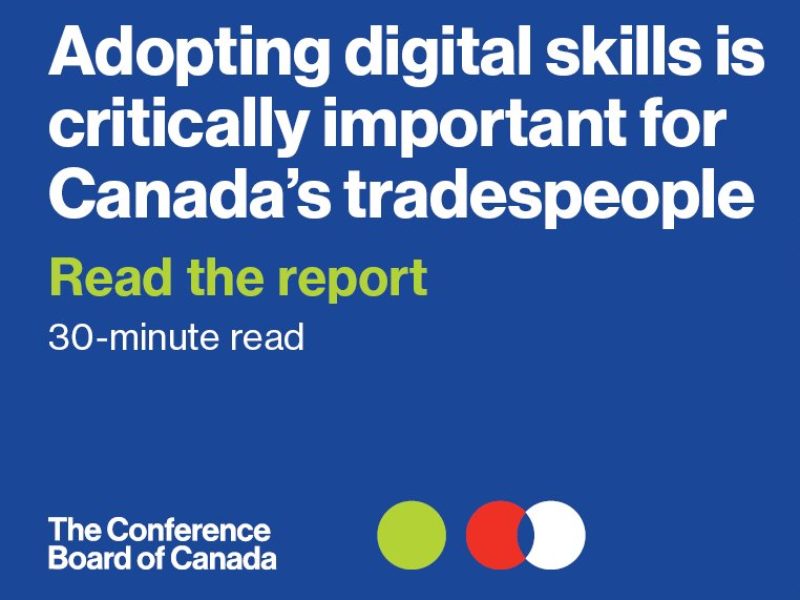Project Insights Report
Calgary Regional WIL Secretariate and Platform
 Executive Summary
Executive Summary
This project, publicly branded as TalentED YYC, sought to revitalize the Calgary regional labour market by developing a more inclusive and comprehensive model for coordinating work-integrated learning (WIL) opportunities. The project sought to get employers to expand their WIL opportunities and increase the number of postsecondary students participating in them. Initially, the project was a response to the Alberta 2023 mandate letters from the Government of Alberta and post-secondary institutions wanting to align to the needs of industry broadly.A centralized digital hub was created to bridge employers and postsecondary institutions (PSIs) to facilitate and encourage WIL opportunities. The Calgary Regional WIL Secretariat, an office operated by Calgary Economic Development, was established to work with employers to facilitate their access to the TalentED YYC portal. The secretariat also engaged collaboratively with the seven partnering PSIs in the region to understand how their WIL programs function and address their needs.
The project was the first of its kind in Canada to bring together so many universities and colleges in an effort to link up their WIL management systems into a single hub. Despite the obvious complexities and initial set-up challenges, the initiative improved its technological infrastructure and operational strategies during rollout, and the secretariat proved itself adept at responding to employers’ needs and helping them to connect to PSIs and students interested in WIL.
By December 2023, the project had engaged 539 employers in the project, with 48 unique businesses and organizations posting 59 traditional WIL opportunities for students. Outside of this engagement, the project generated a total of 514 WIL opportunities and 266 placements.
Although the project concluded in December 2023, TalentED YYC continued to operate to March 31, 2025. This early incubation phase funded by the Future Skills Centre helped to expand WIL opportunities for students by bringing together PSIs and employers in a collaborative and cohesive manner. Structurally, the lessons learned have been fundamental to the continuous improvement of the WIL platform and the functioning of the secretariat.
Key Insights
The project engaged 539 employers and fostered 266 placements, primarily for participants from equity-deserving groups.
Helping small and midsize enterprises (SMEs) through personalized support and guidance in navigating the overall process has an important, positive impact on expanding WIL opportunities.
Organizations need to build strong relationships and trust with each other to work together effectively, especially when programs and technologies are very different.
 The Issue
The Issue
The Calgary Work Integrated Learning Pilot Project, TalentED YYC, launched by Calgary Economic Development, aimed to tackle major challenges caused by changes in the economy and job market in Calgary. The 2023 mandate letters from the Government of Alberta encouraged post-secondary institutions to better align to the needs of industry broadly.The initial pilot ran from April 2023 to December 2023 and was proposed as Calgary was hit hard coming out of the pandemic, when the city’s unemployment rate was recovering from jumps to over 15%, and more than 75,000 jobs were lost from March to July 2020. Particularly hard-hit were young Calgarians; their employment rate was 50% lower than that of the prime working-age population.
Prior to the project, WIL in Calgary was largely facilitated by postsecondary institutions such as universities, colleges and polytechnics, which served to bridge the gap between acquired academic skills and in-demand skills. However, the scale of WIL through PSIs alone appeared insufficient to meet the emerging, large-scale workforce requalification needs. Recognizing that a return to pre-pandemic economic strategies was unfeasible, the project proposed the creation of a more inclusive and comprehensive regional WIL model. It aimed to bring industries, educational groups and economic development actors together to help the economy recover faster and in a sustainable way.
Around the same time, the provincial government introduced new performance-based funding requirements for postsecondary institutions tied to WIL. This prompted Alberta PSIs to reflect on their existing systems for managing WIL programs and how this project might address the emerging limitations and optimize their ability to connect employers and students.

 What We Investigated
What We Investigated
TalentED YYC was supported by the Future Skills Centre in addition to various funders from the municipal to federal levels, including the Government of Alberta and the federal agency PrairiesCan. The initiative involved nine key stakeholders, including seven PSIs in Calgary, the Calgary Chamber of Commerce and the Calgary Chamber of Voluntary Organizations.
The project aimed to address several critical questions:
- Could a centralized digital portal streamline the sharing of WIL opportunities among institutions?
- Could a dedicated secretariat provide essential resources to both current and potential WIL employers, thereby fostering the growth of WIL opportunities in the community?
To answer these questions, the project tested how and in what manner a platform would make it easier for employers—especially SMEs—to recruit students from the seven PSIs in the region for WIL placements. A principal objective for PSIs was to assess the feasibility and effectiveness of syncing their existing database systems for managing WIL placements, thereby connecting employers and students interested in placements.
Another key area of investigation was the assessment of a coordinating entity. To that end, the project established the Calgary Regional WIL Secretariat. Operated by Calgary Economic Development, the secretariat would work with employers to facilitate their access to the TalentED YYC portal, and with the seven partnering PSIs in the region to understand how their WIL programs function and address their needs.
 What We’re Learning
What We’re Learning
By December 2023, the project had engaged 539 employers in the project, with 48 unique businesses and organizations posting 59 traditional WIL opportunities for students. Outside of this engagement, the project generated a total of 514 WIL opportunities and 266 placements.
The project yielded some key insights for the next phase of work and for initiatives attempting to expand WIL or to better match employers to students:
The challenges of user-centred design: combining technology and human support
It is important to integrate technological solutions with user-centred design to improve accessibility and functionality for all stakeholders involved. However, this project brought to the fore the challenges of serving users with varying capacities and needs, which also rendered data collection difficult. While the portal proved to be very useful for larger employers with more experience offering WIL placements, smaller employers did not have the experience, capacity or information needed to use it effectively. Fortunately, the TalentED YYC was able to provide customized support to such employers, though the need for additional resources was previously unanticipated.
Building trust can help to overcome complexities of integrating disparate technology systems
It proved difficult to make the TalentED YYC platform interoperable with the different systems that each of the seven PSIs were using to manage their WIL programs. In many of these institutions, WIL programs were decentralized to the department level, raising further difficulties with respect to systems integration. The project was a valuable lesson in the complexities of making different systems work with one another, especially among several large institutions with varied procedures, policies and infrastructure. However, by building trust with partners and showcasing the benefits of an integrated and coherent system, TalentED YYC was able to overcome some of these barriers. A more thorough needs and capabilities analysis with extensive input from stakeholders at the outset of the project would have gone a long way toward a more effective and seamless integration of systems.
A dedicated organization can help to ensure efficiencies and synergies
A project secretariat akin to the one associated with TalentED YYC can go a long way to maximizing funding efficiency while primarily addressing shared goals of employers and PSIs. For instance, such a secretariat can have dedicated liaisons for both PSIs and employers and can be centralized within an organization, institution or governmental branch that aligns closely with its core objectives. To mitigate scope creep and maintain positive optics with PSIs and employers, a dedicated organization of this nature needs to ensure optimal resource allocation and adopt a lean operational approach initially.
 Why It Matters
Why It Matters
WIL is crucial for bridging the gap between academic education and practical work experience, providing students with the opportunity to apply their classroom knowledge in real-world settings. This integration not only enhances students’ technical skills but also cultivates essential soft skills, such as communication, teamwork and problem solving–skill sets that both employers and graduating students often identify as needing improvement.
WIL, however, is not an educational mainstay across all PSIs or professional disciplines. In Calgary, for instance, the project highlighted that employers have a low awareness of WIL and of the benefits that it brings to students and their companies. Yet at the same time, many employers report difficulty finding graduates with the practical experience needed for their industries and, paradoxically, many entry-level positions require a significant amount of prior work experience.

State of Skills:
Effective Employer Engagement in Skills Development: From Rhetoric to Solutions
Supporting employers in overcoming structural barriers to training investment is key to addressing labour and skill shortages.
The project also uncovered the challenges that SMEs (which are major contributors to job creation in Canada) from adopting WIL more broadly. It highlighted the importance of addressing the capacity constraints among SMEs and providing them with a degree of customized support to help them navigate the WIL process.
The project also demonstrated the promise and the challenge of reinforcing industry–PSI collaboration and coordination. TalentED YYC is one of the first attempts to create a hub for coordinating WIL placements across a region like Calgary, involving most of the region’s institutions. Although TalentED YYC confronted a number of challenges, it generated a number of lessons regarding the time, effort and resources needed to set up industry–PSI coordination mechanisms that, in the long run, will play a valuable role in supporting regional skills strategies.
 What’s Next
What’s Next
With its current funding partners, TalentED YYC will continue to pilot the portal and secretariat into 2025. The next phase of work will focus on continued improvements in the overall process, including enhanced data management. The project also plans to compile resources to meet the requests and needs of PSIs and employers, responding directly to stakeholder demands and providing services that will improve the attractiveness of the project to participants. To that end, the project will increase efforts to boost employer engagement and work toward developing additional memorandums of understanding with PSIs to channel more WIL candidates through TalentED YYC.
Have questions about our work? Do you need access to a report in English or French? Please contact communications@fsc-ccf.ca.
More from FSC
Work Reimagined: Roles, Skills, and Workforce Development in the Age of AI
Rising Skills: Digital Skills Needs for Smart and Connected Vehicles
Bridging Generational Divides: Advancing Digital Skills in Canada’s Apprenticeships and Skilled Trades Ecosystem
How to Cite This Report
Stephens, A. (2024). Project Insights Report: Calgary Regional WIL Secretariat and Platform, Calgary Economic Development. Toronto: Future Skills Centre. https://fsc-ccf.ca/projects/calgary-wil
Calgary Regional WIL Secretariate and Platform is funded by the Government of Canada’s Future Skills Program. The opinions and interpretations in this publication are those of the author and do not necessarily reflect those of the Government of Canada.




